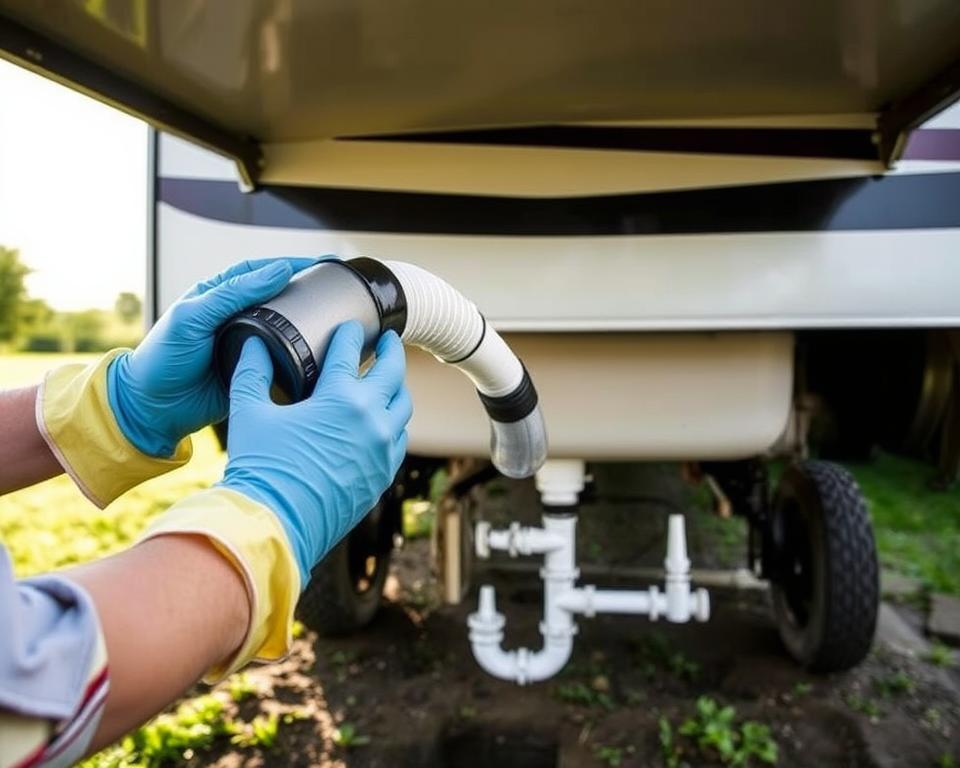Septic System Pumping
Have you ever wondered how often you should arrange septic system pumping to avoid expensive malfunctions? With in excess of 20 percent of U.S. households relying on septic systems, understanding their maintenance is essential. Having a clear idea of when to book a septic tank service is critical to its longevity. Moreover, there are budget-friendly septic pumping services that provide high-quality functionality without overspending. This guide covers critical upkeep advice helpful for every homeowner.
Top Highlights
- Routine septic system pumping is essential for smooth functioning.
- Recognizing the symptoms that show the need for service can ward off major issues.
- Selecting licensed septic system pumpers guarantees top-quality maintenance.
- Cost-effective septic pumping alternatives are within reach for homeowners.
- Regular inspections promote optimal system performance.
Know How Your Septic System Works
A septic system plays a vital role in processing household wastewater, comprising several integral components that work together. The main drain line carries wastewater from your home to the septic tank, where the process starts. In the tank, an underground chamber, solids sink at the bottom, and bacteria decompose these solids, cleaning the waste thoroughly.
The treated liquid outflow subsequently flows from the septic tank to the distribution box, where it is spread evenly across the drain field or leach field. Here, the soil carries on with the filtration, further purify the wastewater. Grasping the functions of these septic system parts is critical. It enables homeowners to oversee and upkeep their systems effectively.
Knowing how your septic system operates allows you to take proactive maintenance measures. It’s advisable to have scheduled meetings with qualified service providers of septic systems – RV waste pump. They supply crucial insights for peak operation of your system. These professionals assist in scheduling the required pump-outs and checks. This proactive approach can considerably extend your septic system’s lifespan.
Importance of Septic System Maintenance
Maintaining your septic tank regularly is critical for homeowners who want their system to remain reliable. A well-cared-for system provides peace of mind and protects your property’s value. Without proper care, you’re risking system breakdowns and health dangers.
Selecting a high-quality septic pumping service is essential. They deliver timely inspections and pump-outs, extracting sludge and scum buildup. If maintenance is overlooked, last-minute pumping may be required, which is pricey.
Following a steady maintenance plan is wise. It involves professional evaluations and regular pumping. This preventive measure helps avoid urgent issues, creating a more secure living environment for everyone.

Warning Signs for Septic Systems
Being alert to septic system issues can sidestep costly repairs and major damage. Common signs indicate when your system needs a check. These comprise:
- Sluggish drains throughout the house
- Pooling water in the yard above the drain field
- Foul odors near the septic tank or leach field
- Remarkably lush grass growth in specific areas of your yard
These signs could indicate problems that might result in your system failing. Acting quickly is essential. Reaching out to septic pumping professionals for an inspection assists. Early intervention prevents minor issues from growing into serious ones. Additionally, consistent upkeep secures your system operates well and has a longer life.
Best Practices for Septic System Pumping
Correct pumping of your septic tank is essential to sidestep expensive clogs and backups. It’s vital to determine the ideal interval for maintenance. Homeowners should usually arrange pumping every 2 to 5 years, based on the tank’s size and household wastewater levels. Intensive use of garbage disposals may demand more frequent pumping.
Employing experienced pumpers ensures your tank gets a complete clean and check-up. During pumping, professionals look for any issues, such as faulty baffles. Finding these problems promptly heads off larger expenses and inconveniences later. Routine pumping schedules and expert help provide your septic system’s trouble-free operation.
Regular Inspections Keep Your Septic System Running
Periodic inspections are essential for your septic system’s effectiveness. Septic system inspections reveal minor issues before they grow. Experts advise inspections every three to five years, influenced by system size and household usage. This prevents expensive fixes.
Holding maintenance records is important for tracking your system’s condition. These records offer insights into previous inspections, repairs, and suitable intervals to schedule septic tank cleaning services. With this information, preparing for future upkeep becomes easier, maintaining septic systems in excellent shape.
Frequent inspections and detailed record-keeping not only improve system efficiency but also extend its life. This method protects the environment and the investment in a safe, operational home.
| Inspection Type | Recommendation Frequency | Benefits |
|---|---|---|
| Visual Inspection | Annually | Identify surface issues |
| Professional Inspection | Every 3–5 years | Assess functionality and detect problems |
| Septic Tank Pumping | Every 3–6 years | Prevent overflow and system failure |
Water-Saving Habits for a Healthier Septic System
Mindful water use is key for keeping your septic system robust. It not only aids the environment but also improves the performance of your home’s plumbing. By embracing simple, yet effective, conservation methods, homeowners can cut down on wastewater.
Space out your laundry activities over the week instead of completing them in a single day. This allows the septic system to handle water better and prevents tank overflow. Installing low-flow fixtures in your kitchens and bathrooms yields considerable water savings, keeping the water pressure up while lowering the flow rate, thus lowering the amount of wastewater produced each day.
Swiftly fixing leaks is another practice to assist your septic system. Even a small leak can lead to a large waste of water, stressing the septic system. Through regular inspections and repairs, you materially improve the system’s efficiency.
Prioritizing water conservation isn’t just beneficial for your septic system; it’s also a step towards environmentally responsible living. Making such practices a part of your lifestyle benefits both your household and the planet.
Proper Handling of Household Waste
Homeowners hold a key role in keeping their septic system’s health by handling household waste correctly. It’s essential to avoid throwing away non-biodegradable items like wipes, plastics, and other hazardous products in the system. These items can cause clogs, resulting in costly repairs and a decrease in efficiency.
Converting food scraps and organic materials is a beneficial alternative to throwing them in the trash. This practice greatly reduces the amount of solid waste entering the septic tank. Focusing on biodegradable waste disposal supports the ecological balance needed for effective waste management.
It’s vital to watch what goes down the drains. Non-decomposable items can necessitate more frequent septic tank pumping. By understanding and adhering to correct waste disposal methods, you can ensure a more efficient and long-lasting septic system.
Cleaning Product Tips for Septic Health
The health of your septic system is heavily influenced by your choice of cleaning products. Opting for septic-safe cleaning products is essential. These products shield the balance of beneficial bacteria that digest waste. Many standard cleaners contain harmful chemicals that jeopardize this balance, leading to expensive repairs or system failure.
Homeowners should look into natural alternatives that are both effective and environmentally friendly. Common household items like baking soda, vinegar, and lemon juice are excellent choices. These natural cleaners are not only capable but also encourage your septic system’s health.
Avoiding products that contain antibacterial agents and chlorine bleach is crucial. Such substances damage the beneficial good bacteria, undermining your system’s functionality. By adopting sustainable products, you protect both the efficiency and longevity of your septic system.
Bacterial Health and Your Septic System
Bacteria carry out a vital role in keeping your septic system efficient. They break down solids naturally and enhance nutrient processing. A lack of healthy bacteria can cause system failure, creating costly repairs.
Homeowners can bolster their system by using organic additives. These products raise beneficial bacteria, making waste decomposition more effective. It’s important to select organic additives that are beneficial, not harmful, to the septic environment.
A healthy bacterial community is key to a septic system’s longevity and efficiency. It stops solid buildup and lessens the need for regular pumping. Focusing on bacterial health ensures waste management more effective and eco-friendly.
To Summarize
Septic system care is essential for the longevity and functionality of your home’s wastewater system. Sticking with essential maintenance tips prevents hefty repairs. Grasping routine pumping and inspections is key. This secures your septic system remains in excellent condition.
Becoming knowledgeable of your septic system’s operation and proper methods in water and waste management is vital. Engaging professionals like All in Sanitation provides expertise. This helps secure your septic system’s long-term health and offers reassurance.
Prioritizing proper septic maintenance today yields future benefits. It protects your home and improves your family’s quality of life. Emphasizing septic system care delivers assurance with a well-maintained system.


